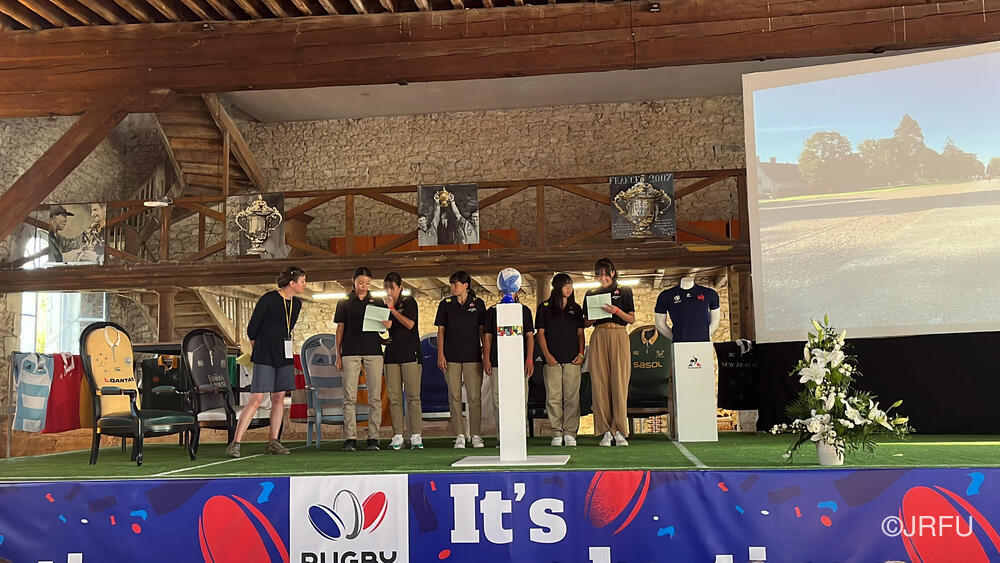Rugby Heritage Cup 2023 Gives Memories to Last a Lifetime

In the leadup to Rugby World Cup 2023, Pontlevoy, a small town situated in the Loire Valley and surrounded by stunning French countryside played host to a truly special rugby tournament – the inaugural Rugby Heritage Cup 2023. Held from September 1 to 8, the event was hosted at Abbey Pontlevoy, a prestigious boys and girls high school situated in an historic abbey built almost 1,000 years ago, in 1034.
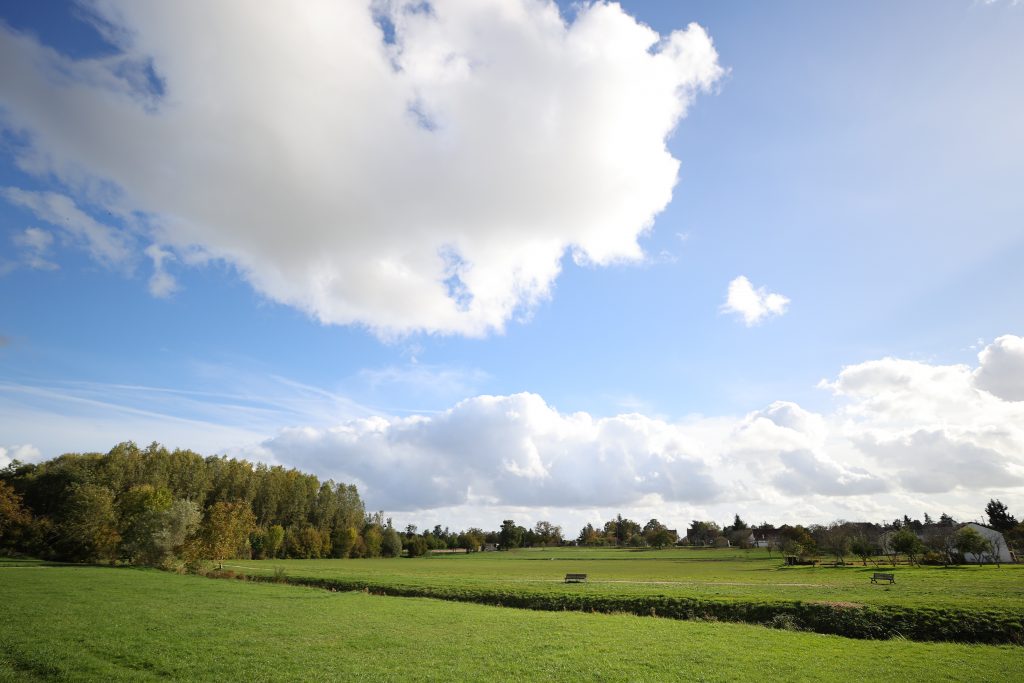
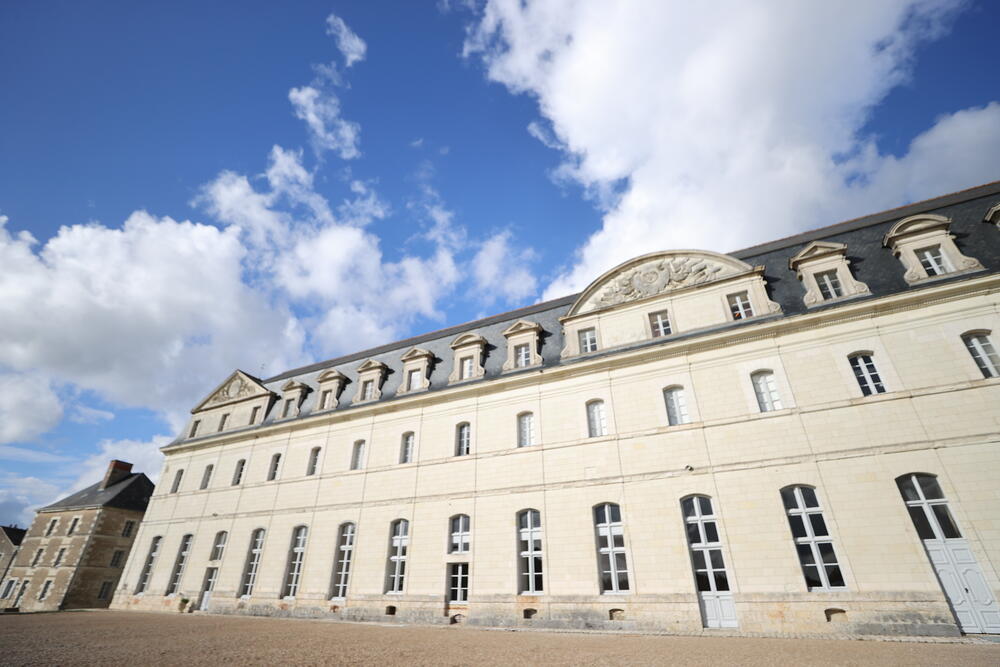
@K.Matsumoto
The competition brought together around 500 young people from 39 teams, drawn from 19 countries around the world. As the name would suggest, the event had a strong rugby focus through its seven-a-side tournament, yet it was far more than just a sporting event. Participants also needed to demonstrate their creativity and teamwork with both culinary and film-making components that also counted in deciding the ultimate tournament champions.
Japan was represented at the event by an U15 girl’s invitational sevens side, playing under the banner of the ‘Japan Rugby Academy’. The team went on to win the girl’s sevens tournament, thus putting them in contention to be crowned Tournament Champions if they could also deliver in the Rugby Chef and Rugby Short Film competitions. While they tried their very best, and clearly relished the experience, it was a team from Madagascar that eventually won the competition based on their strong performance across all three categories.
The Rugby Heritage Cup was made possible by the coming together of a group of passionate volunteers who shared a love for rugby, education, and youth development. Through their vision, drive, dogged determination, and sheer hard work, young people from around the world experienced a truly unique and life-changing experience combing sport, education, and cross-cultural interaction.

One of the major drivers was to bring children together for face-to-face exchange. In today’s world, where so much of the interaction of young people within the wider world is conducted through digital means and social media, the organisers wanted these young people to experience the power and beauty of real and deep, interpersonal engagement. To experience the types of exchange and connection that might be both life-changing, and build lifelong friendships.
To find out more about how the Rugby Heritage Cup came to be, we spoke with three of the organisers, Thierry Chenet, François Roche-Bayard and Thibault Lajouanie who were key members of the team that delivered this extraordinary event.

at Le Dôme Montparnasse in Paris
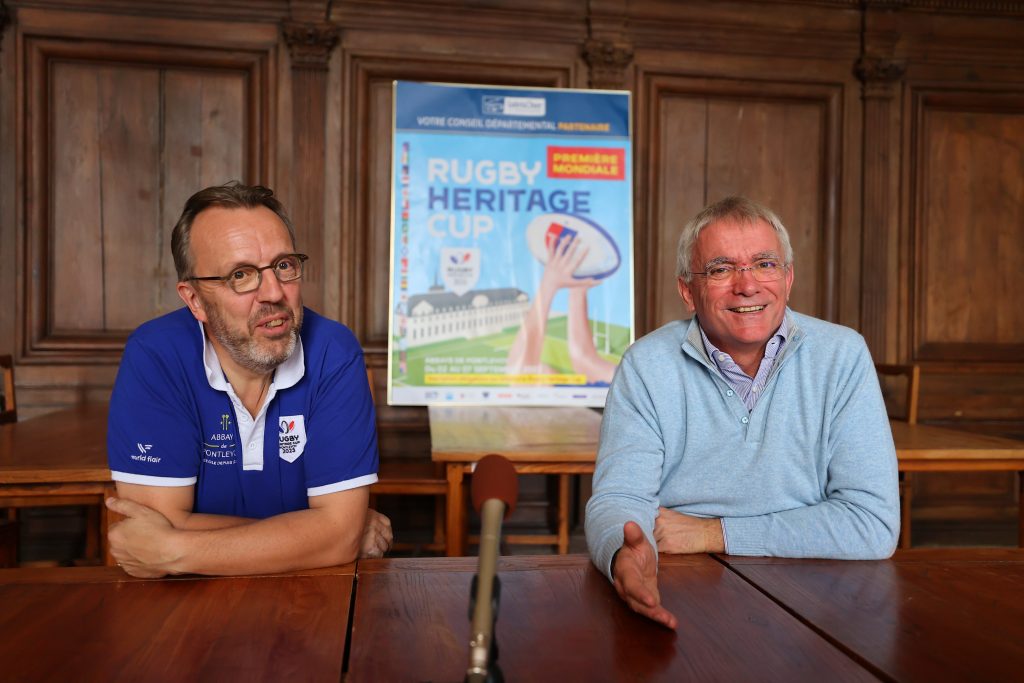
at Abbey in Pontlevoy
The initial idea came about at a family dinner in which Thierry discussed with his brother-in-law François about organising a youth rugby competition around the 2023 World Cup. As passionate former players who both coach youth rugby, they felt this dream could become reality if they could build a team that shared their vision and could help bring the event together.
In 2018 Thierry, Francois and other team members visited the RWC organising committee in Paris to present their plan. It received a positive response and the ball started rolling from there.
However, it was not all plain sailing. There were changes in personnel at the RWC Organising Committee and the challenges around COVID also had to be overcome. Nevertheless, the dream continued to grow into reality, and the team kept moving forward. Thierry and François’ idea gradually became everyone’s hope. The number of supporters continued to grow and as the competition took shape, they realised that it was a challenge on a far grander scale than they had first thought.
During the final preparation period, 250 graduates of the school raised their hands to support the programme as volunteers and many of the local villagers also lent their support. When the event finally came, Pontlevoy, which is normally a quiet village of around one thousand inhabitants became a lively, bustling place. The village was filled with smiling faces when the players paraded through the village for the opening of the tournament.

Looking back at the tournament, Thierry, Francois and Thibault have fond memories of the Japan Rugby Academy. “The Japanese girls were very quiet at the opening parade. They had just arrived and were not familiar with the language. In contrast to the French and Argentinians, who were loud and excited from the outset. It started that way, but for me the Japanese players seemed to change the most over the week.” Commented Thierry.
“At first, they only greeted others with a polite ‘bonjour’ and kept a bit to themselves, but eventually the girls started to speak up and make their presence felt. With each team having to give a performance, they did a wonderful, traditional Japanese dance.”
Going on to play a team from New Zealand in the final, Thierry shows a photo of the Japanese players looking on at the opposing team’s haka. “They look good, don’t they? They played so well; they were so brave, and they expressed themselves to the full.
François was struck by the appearance of the Japanese players during the tournament.
“They wore the shirts we gave them, except when they were playing rugby. They were always neat, clean, and so polite. I was impressed. I expected them to be shy, but they were always smiling and approaching their surroundings in a positive way. Even though they live in such a different environment, the fitted in with the other student from other cultures who were of the same age. They were very excepting of each other.”
Thibault added, “Their memories from their time in Pontlevoy will remain with them for the rest of their lives. Not only with their rugby, in which the low-tackling of the Japanese was superb, but for their wider experiences and the friendships they have made. Everybody at this tournament has gained a treasure.”
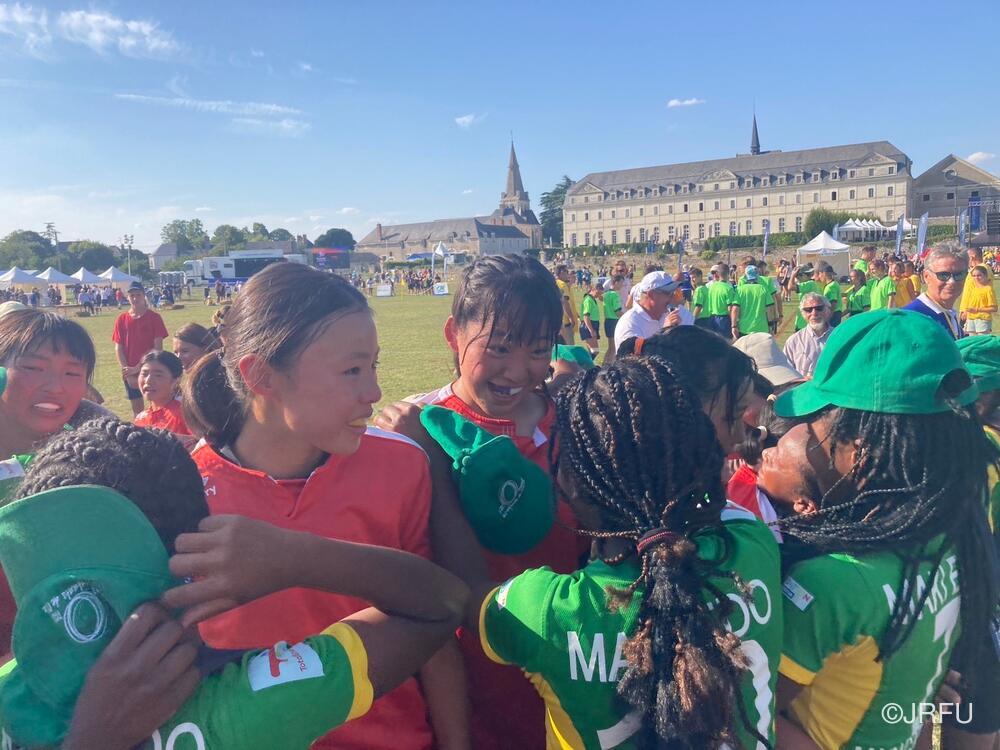
While the Japanese team won their rugby tournament, they were not able to translate this success into the culinary competition where they chose to cook ‘takoyaki’ or octopus balls – the famous Japanese soul food from Osaka. “The judges were all French, so I guess this dish didn’t suit their palates. Next time we better pay closer attention to the selection criteria of the judges as the winner of the chefs’ category was the team from Marseille”, commented François with a laugh.
François concluded, “Many people want to see the competition continue and ideally the tournament should be held in conjunction with Rugby World Cup 2027 in Australia. However, if being too attached to the larger event is an obstacle, then I hope that the priority will be to find a way to continue and sustain the tournament regardless.
“We will share everything we have done and our experience in organising it, but we want to ensure the event isn’t just about rugby. Of course, without rugby the tournament would not have been possible. But rugby was not the only focus. It was both rugby and education that made this event so successful.
“We thought language differences might create barriers however such fears were unfounded. The power of rugby and young people was way beyond anything we could ever have imagined.”
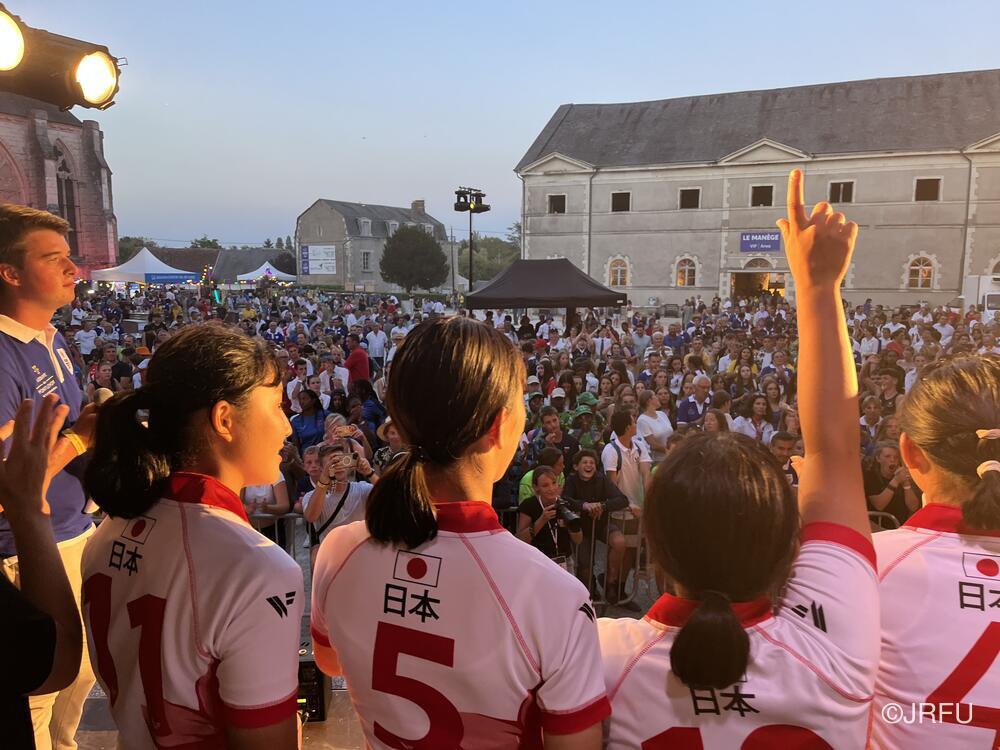
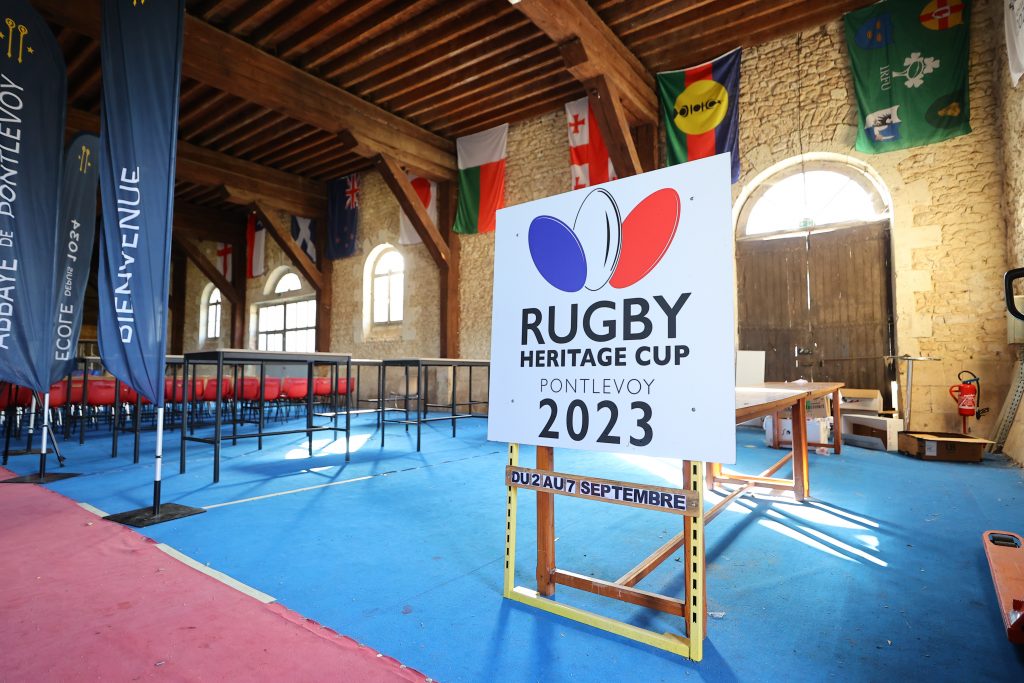
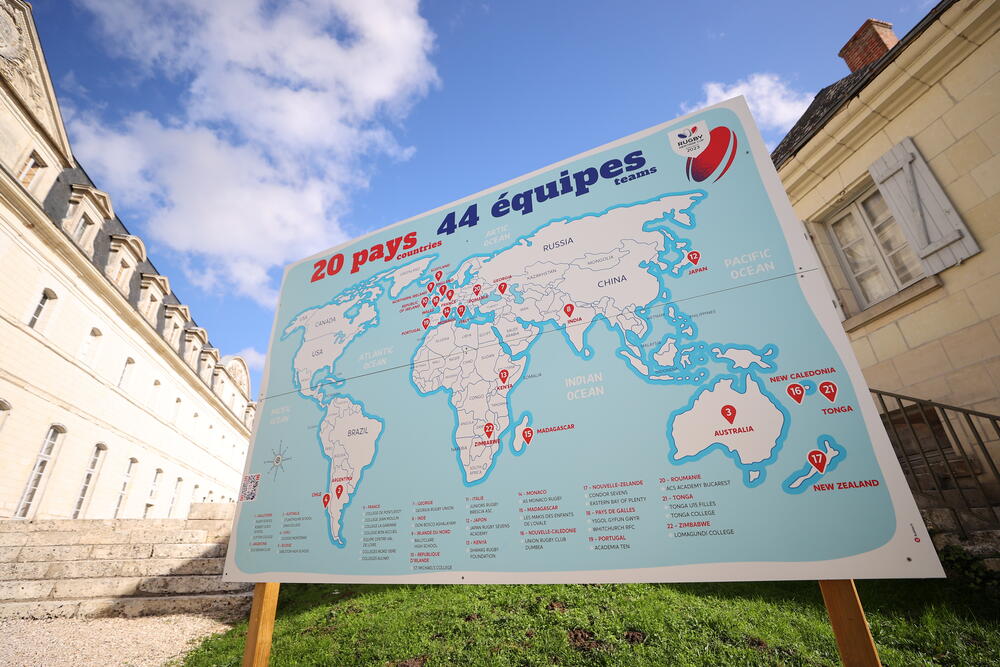
*Rugby Heritage Cup Pontlevoy 2023 Official website https://pontlevoy2023.com/

